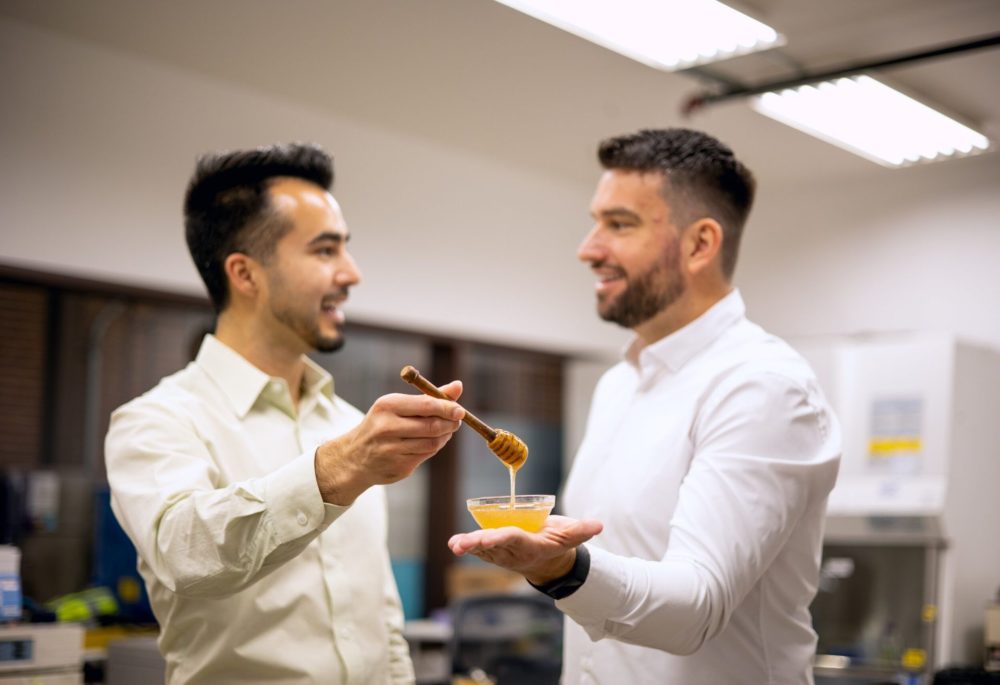MeliBio Acquired by FoodYoung Labs: A New Chapter for Bee-Free Honey
MeliBio, the innovative California-based startup known for creating honey without bees, has entered into a significant partnership with Swiss innovation hub FoodYoung Labs.
About FoodYoung Labs
Located in Balerna, Switzerland, FoodYoung Labs boasts a dedicated innovation facility that specializes in developing various food products such as snacks, bars, chocolates, and frozen items. The company has created several brands, including ZAZ, Kakoo, Bonnap, FRŸZE, Mani, and CimaNorma. Founded by Abouzar Rahmani, FoodYoung Labs also provides essential marketing and business support for emerging brands.
Details of the Acquisition
This acquisition involves FoodYoung Labs taking over MeliBio’s Mellody plant-based honey brand, along with its initial generation of plant-based technology and intellectual property (IP). Notably, the acquisition does not include MeliBio’s more advanced ‘Generation 2’ technology, which utilizes precision fermentation to replicate the enzymes that naturally occur in bee-produced honey.
Leadership Transition
MeliBio co-founders Darko Mandich (CEO) and Dr. Aaron Schaller (CTO) will assist with the transition but are still determining their future paths. “Aaron and I are focused on ensuring a smooth transition in the near term,” Mandich told AgFunderNews.
Regarding their advanced technology, Mandich emphasized, “It’s TBD for mid-term, as few options exist.” He expressed that the real impact of their collaboration with FoodYoung Labs is rooted in their well-equipped facilities and robust supply chain capabilities.
Manufacturing Shift
The production of Mellody products, currently based in Southern California, will shift to Balerna, Switzerland, under the management of FoodYoung Labs, with plans to eventually return some products to the US market.
Challenges in Fundraising
Mandich indicated that 2024 has presented significant challenges for MeliBio, including difficulties in securing appropriate valuations from investors. Despite gaining traction with Mellody, which has seen distributions across 500 US locations, he noted a discrepancy in investor expectations regarding their model.
“We learned that while some investors found us too science-heavy, others appreciated our plant-based market presence. The operational focus was primarily on the US, where we have better control over the supply chain and distribution,” he explained.
Mandich highlighted the necessity of additional funding to secure regulatory approvals and expand their fermentation business. “While past partnerships, like with Slovenian food maker Narayan, taught us valuable lessons, direct control in the US market has proved to be more beneficial,” he added.
The Road Ahead
Having raised approximately $10 million from notable investors such as Big Idea Ventures and Astanor Ventures, Mandich stresses the challenges startups face in the foodtech sector. He acknowledges that while investors may feel burned, foodtech represents a domain where substantial returns are possible.
Ultimately, Mandich reflects, “Founders need to adapt, and investors should remain engaged. The future of foodtech is promising, and companies can achieve remarkable outcomes with judicious support and investments.”

This HTML structure ensures that the article is well-organized and formatted for easy integration into a WordPress environment, enhancing readability and navigation.



